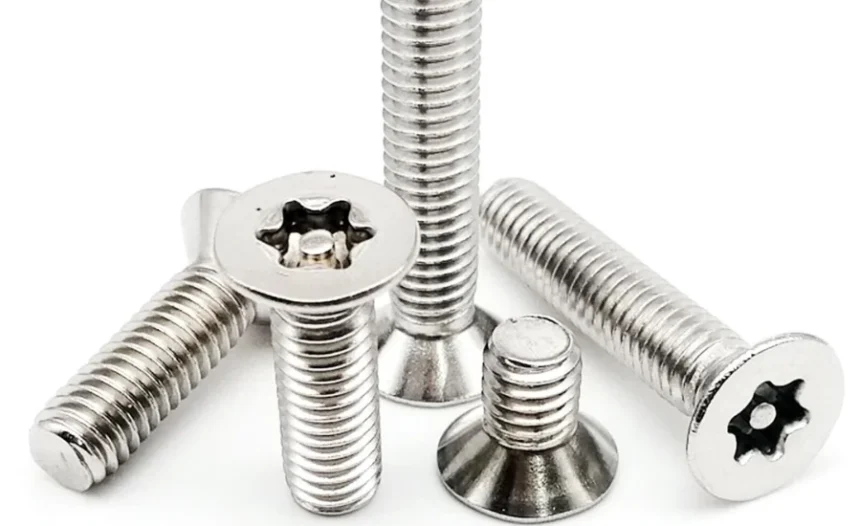Introduction to screws and their importance in construction
Screws are the unsung heroes of construction and DIY projects. They may seem small, but their role is vital in holding everything together—literally! From assembling furniture to securing structures, screws provide stability and strength where it matters most.
If you’ve ever struggled with finding the perfect screw for your project, you’re not alone. With so many options available, it’s easy to get overwhelmed.
In this guide, we will dive deep into the world of 623-483-04 screws and help you understand why they might be just what your next project needs.
Whether you’re a seasoned builder or a weekend warrior tackling home improvements, knowing about different types of screws and how to select them can make all the difference in achieving that flawless finish. Let’s explore the essentials that will elevate your craftsmanship!
Types of screws: wood, sheet metal, machine, self-tapping, and drywall
Screws come in various types, each designed for specific materials and applications. Wood screws have sharp points that help them penetrate wood easily without splitting. They create strong joints, making them ideal for furniture assembly.
Sheet metal screws are engineered to fasten thin sheets of metal together. Their unique thread design allows for a secure grip, ensuring stability even under pressure.
Machine screws differ from their counterparts; they require a pre-drilled hole and typically fit into the nut or tapped holes. These are perfect for mechanical assemblies where precision is key.
Self-tapping screws stand out because they can cut their own threads as you drive them in. This feature eliminates the need for pre-drilling in many cases, saving time during projects.
Drywall screws are specifically designed to attach drywall to wooden or metal studs efficiently. Their fine threads provide excellent holding power while minimizing damage to the board itself.
Understanding screw sizes and measurements
Screw sizes can be a bit confusing at first. However, grasping the basics is crucial for any construction project.
The diameter refers to the thickness of the screw shaft. It’s essential to select a size that matches your material without causing damage. A thicker screw provides more grip but requires an appropriately sized hole.
Length is another vital measurement. This determines how deep the screw penetrates into materials. Choosing too short may result in weak joints, while overly long screws might split wood or protrude awkwardly.
Threads per inch (TPI) indicate how tightly packed the grooves are along the shaft. Finer threads work well in softer materials, whereas coarse threads excel with harder surfaces. Understanding these measurements helps ensure you pick 623-483-04 screws that fit perfectly and perform effectively for your intended application.
Common Materials used for screws: stainless steel, brass, zinc-plated steel
When selecting screws, the material plays a crucial role in their performance and longevity.
Stainless steel screws are known for their strength and resistance to rust. They excel in outdoor applications or environments with high moisture levels.
Brass screws offer an attractive finish and excellent corrosion resistance. They’re often chosen for decorative projects or where aesthetics matter as much as functionality.
Zinc-plated steel screws provide a cost-effective solution while still offering decent protection against rust. The zinc coating helps shield against moisture but may not withstand harsh conditions like stainless steel can.
Each material serves distinct purposes, so understanding your project needs will guide you toward the right choice of screw.
Must Read: TG Tubes: Precision Tubing for Specialized Needs
Choosing the right screw for your project based on material and size
Choosing the right screw isn’t just about picking something off the shelf. It requires consideration of both material and size.
For outdoor projects, stainless steel screws are ideal due to their resistance to rust and corrosion. If you’re working with softer materials like wood, consider using wood screws designed for optimal grip without splitting.
Size matters significantly too. A longer screw provides better hold but can cause damage if it penetrates deeper than necessary. Meanwhile, a thicker diameter increases strength but also demands more effort during installation.
Always check compatibility between the screw type and your project material. For example, drywall screws work perfectly with gypsum board but may not suit heavier applications like metal framing.
Taking these factors into account will lead you toward selecting 623-483-04 screws that truly fit your project’s needs.
Maintenance tips for screws: preventing rust and corrosion
Screws are essential for holding together various structures, but they can suffer from rust and corrosion over time. To keep 623-483-04 screws in top shape, proper maintenance is key.
Start by selecting the right material for your environment. Stainless steel screws resist corrosion better than others. For areas exposed to moisture, consider using coated screws designed specifically to deter rust.
Regular inspections are important. Check for signs of wear or damage that could lead to corrosion. If you find any issues, replace them promptly to maintain integrity.
Applying a thin coat of lubricant can also help protect against moisture buildup. This creates a barrier that minimizes contact with water and air.
Remember to store screws in a dry place when not in use. A little proactive care goes a long way in extending their lifespan and ensuring optimal performance in your projects.
623-483-04 6 Lobe Screw: Overview
The 623-483-04 6 lobe screw is a specialized fastener that features a star-shaped, six-point drive, commonly known as a Torx drive.
This design allows for higher torque transfer with reduced risk of cam-out, making it ideal for applications where secure fastening is critical.
The specific part number indicates that this screw adheres to particular dimensions and material standards, often required in precise or high-stress environments.
Design Advantages of the 6 Lobe (Torx) Drive
The 6 lobe design of the 623-483-04 screw offers several advantages over traditional screw types like Phillips or slotted head screws.
The star-shaped recess allows for better engagement between the tool and the screw head, enabling greater torque without damaging the fastener or tool.
This makes it an excellent choice for applications requiring durability and precision, as the risk of slipping is minimized.
Applications of the 623-483-04 6 Lobe Screw
This screw is commonly used in industries like automotive, aerospace, and electronics, where reliability and high performance are essential.
The 623-483-04 6 lobe screw is often found in assemblies that experience constant vibrations or need to maintain tight tolerances.
Its ability to handle high levels of torque without deformation makes it ideal for use in engines, machinery, and other critical components.
Material and Durability of the 623-483-04 Screw
While the exact material composition of the 623-483-04 screw can vary, most 6 lobe screws are made from high-strength materials such as stainless steel, titanium, or hardened alloys.
These materials ensure the screw can withstand stress, corrosion, and wear over time, making them suitable for long-term use in challenging environments.
The precise engineering behind this part number ensures consistency in performance and reliability.
The Importance of Using 623-483-04 6 Lobe Screws
The 623-483-04 6 lobe screw offers significant advantages for applications that require strength, precision, and reliability. Here are some key reasons why using this specific screw type is important:
1. Enhanced Torque Control and Efficiency
The 623-483-04 screw’s 6 lobe (Torx) design ensures optimal torque transfer, meaning that more force can be applied without stripping the screw head.
This results in faster assembly, easier installation, and reduced wear on tools, which is especially important in industries where time efficiency and reliability are crucial, such as automotive and electronics manufacturing.
2. Reduced Risk of Cam-Out
Traditional screws like Phillips or slotted types often suffer from cam-out, where the driver slips out of the screw head when excessive torque is applied. This can lead to tool or fastener damage.
The 623-483-04 screw, with its 6 lobe design, minimizes this risk, making it a superior choice for assemblies that require a tight, secure fastening, especially in environments that experience vibrations or high stress.
3. Durability and Long-Term Reliability
In critical applications, the longevity of the fastener is paramount. The 623-483-04 screw is typically made from high-quality materials like stainless steel or alloys, ensuring resistance to corrosion, wear, and fatigue.
This durability extends the lifespan of the components they are used in, reducing the need for maintenance or replacements in harsh conditions, such as aerospace or industrial machinery.
4. Consistency in Precision Assemblies
For industries that require exact tolerances and consistent performance, such as electronics or medical devices, the 623-483-04 screw ensures that components are fastened securely without compromising precision.
Its design allows for repeatable, consistent fastening, reducing the chances of over-tightening or under-tightening, which can affect product performance or safety.
Conclusion
Using the right screws, like 623-483-04 screws, can make all the difference in your construction projects. They ensure not just structural integrity but also longevity. Choosing the appropriate type and size based on your materials is critical. It prevents issues down the line, such as loosening or breaking.
Proper maintenance of these fasteners will enhance their performance and durability too. By taking care to prevent rust and corrosion, you guarantee that your projects stand strong over time.
Understanding screw specifications empowers you to make informed choices that align with your project needs. Whether you’re a DIY enthusiast or a seasoned professional, investing time in selecting high-quality screws pays off significantly in any build.








